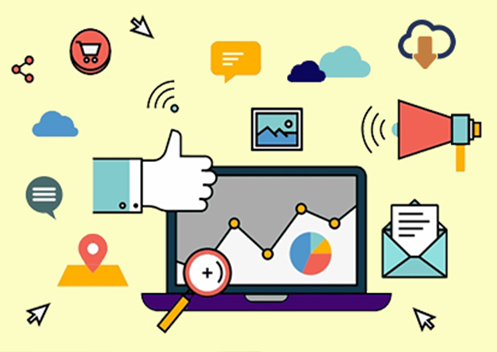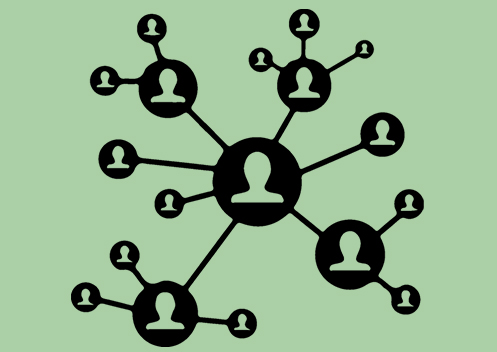The Application of ChatGPT in Higher Education
July 21, 2023
Artificial Intelligence (AI) is a fast-developing field based on the imitation of human intelligence processes through the application of algorithms created in a dynamic computational environment.
Due to its multiple functions, this system can be used as a tool in any field. For example, it is capable of handling large amounts of data quickly to identify and understand verbal commands and images, perform calculations, and other complex actions. Specifically, ChatGPT is a language model of artificial intelligence that allows people to interact with a computer in a conversational manner. Its responses are generated using data analyzed and collected from the Internet.

Thanks to ChatGPT’s ability to generate and evaluate information, it is possible to integrate various functions into the teaching and learning processes.
For example:
– Generates different ways of expressing the same idea using the “Regenerate answer” option.
– Acts as an opponent if the conversation follows the structure of a debate, developing ideas and arguments.
– Information searches requested by students or teachers to complete assignments and tasks, help with research and generate content for classes.
– It provides personalized feedback to students on their progress and guides them based on using the information that teachers (or students themselves) have provided to the system.
– It can intervene in the design or update of a curriculum.
– It helps the students to reflect on the learning material by explaining their level of understanding and requesting support for their study.
– After knowing the level of the students, ChatGPT can propose games and challenges to motivate them to extend their learning on a topic.
ChatGPT functions can also be applied in research. For example, it can be used to complete the technical parts of research funding applications, data analysis and collection, research design (suggesting data sources or generating ideas for questions or projects), or other writing tasks (translating texts, improving writing, or reformatting citations and references). It is even possible to predict whether a scholarly article will be accepted or not.
As for the Administration of Higher Education Institutions (HEI), ChatGPT is used to improve the efficiency of the processes carried out in this department. This tool can answer any type of query (e.g., those requested by potential students), assist in the student enrollment process, send reminders, and indicate to students their exam schedules or the location of their classes. However, the main advantage of incorporating AI into this department is that administrative services can be available 24 hours a day, 7 days a week.
Ethical Implications
The application of ChatGPT in HEI has been immediate and has had a full impact on all areas of these institutions. However, many universities have already banned its use for fear of plagiarism and some countries have blocked this chatbot (for example, countries like China or Italy).
In addition to the risk of plagiarism, HEI is also concerned that the existing tools for detecting plagiarism are not sufficiently effective in the face of writing done by ChatGPT, which has led many of these institutions to ban its use or to change the form of evaluation (for example, based on unwritten tasks or activities done in the same class).
The fast development of ChatGPT has unsettled many experts due to its lack of regulation. A group of more than 1,000 leading private-sector academics has published an open letter calling for a pause in the refinement of AI systems. The rationale is to give researchers time to better understand their potential risks and develop protocols for action.
Another concern expressed about AI tools is related to user privacy: What data is collected, who collects it, and what use will it be put to? In April 2023, Italy was the first country to block ChatGPT precisely because of these questions, as it found no legal basis for the collection and storage of personal data used in this chatbot.
In addition to the debate about the information it collects, there is also a discussion in society about the data it provides. Since ChatGPT is not governed by ethical principles and does not distinguish between right and wrong (it only collects information from the databases and texts it processes from the Internet) it is of vital importance to critically analyze the results it provides and compare them with other sources of information. In this way, the need arises to protect the most vulnerable audiences. For example, because this tool is unable to detect the age of a user, a minor could be exposed to age-inappropriate answers or content.
Conclusions
Most governments and HEIs are looking for ways to adapt to an environment where the use of AI is widespread. ChatGPT can become a great day-to-day ally tool for any professional, as long as ethical considerations are taken into account and used appropriately. Currently, ChatGPT cannot replace human creativity and critical thinking.
As far as higher education is concerned, ChatGPT can be of great help in increasing research and development capacity. New AI-focused training programs will equip students with cutting-edge knowledge, and existing ones can be updated to incorporate subject matter so that students can be equipped with AI competencies and skills.
UNESCO (2023). ChatGPT and artificial intelligence in higher education: quick start guide Available in: https://unesdoc.unesco.org/ark:/48223/pf0000385146.locale=en






